Knowledge Center
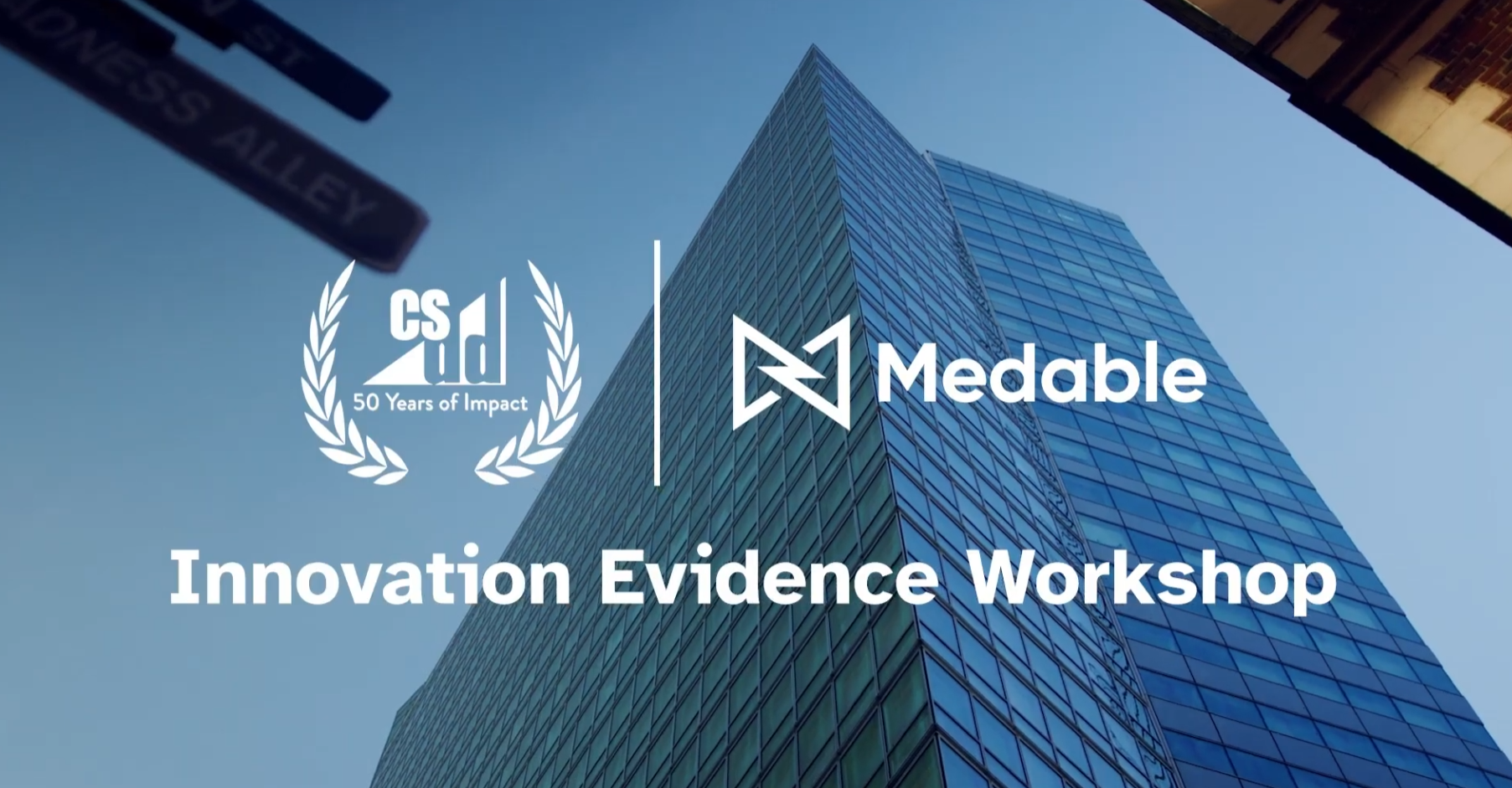

Innovation Evidence : A Tufts CSDD workshop
In the five years since the pandemic, decentralized trial elements have solidified their status in medical product development.
Trials with decentralized elements have moved past the “pilot” phase. The question is no longer whether we can operationalize decentralized trial components, it's whether we’re doing it thoughtfully at the pace patients deserve. Our industry is ready to optimize the elements for the trial based on available evidence.
That’s exactly why Medable, in collaboration with and facilitated by the Tufts Center for the Study of Drug Development (Tufts CSDD), has launched the Innovation Evidence Workshop series.
Last November, the inaugural, invitation-only workshop brought leaders from 20 pharmaceutical, biotech, and CRO organizations together in Boston, with representation from the U.S. Food and Drug Administration, Harvard MRCT Center, Tufts CSDD, and Medable.
Latest Blogs


What happened at Scope Summit 2026
To many, the SCOPE Summit is the year’s “newsroom,” setting the stage for what hot topics and driving forces will dominate the coming year.
With this year’s conference winding down, we’re once again offering a glimpse into the evolving operational and technological conversations shaping the future of trials with our recap below.
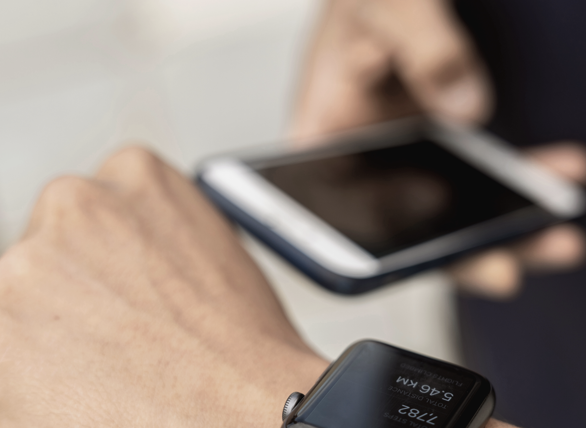

Everest analysis: How Medable eCOA solves speed, patient experience, and customer needs
eCOA has moved from a supporting tool to a foundational pillar of modern clinical trials, and Everest Group agrees. In its inaugural eCOA Products PEAK Matrix Assessment, Everest named Medable a Leader, citing strong market impact, accelerated timelines, and a platform built for real-world trial complexity. As the eCOA market surges toward nearly $1B in value, this recognition underscores how speed, patient experience, and AI-driven innovation are reshaping how trials are designed, launched, and scaled globally.


What happened at JPM 2026?
Each January, the J.P. Morgan Healthcare Conference sets the tone for the life sciences industry, serving as the year’s most influential gathering of biotech, pharma, investors, and dealmakers.
This year was no different.
Thus, we checked in with our conference attendees, booth visitors, and more to see what they thought were this year’s trend-setting takeaways.
White papers, Case studies & reports


Medable oncology solutions
Discover how Medable’s AI-powered oncology platform simplifies complex cancer trials by integrating eCOA, ePRO, and eConsent solutions—reducing trial time, improving patient retention, and enhancing data quality for faster, more efficient research.


Driving a high-adherence LTFU trial without an EDC
Learn how Medable is powering a decade-long, global long-term follow-up (LTFU) obesity study, achieving an impressive 97% patient retention rate without using a traditional EDC system all while delivering a compliant, scalable, and cost-efficient solution.


Eliminate clinical trial white space with the right AI strategy
It has become clear that our industry has reachedthe limits of human-only clinical development. As clinical trials have become increasingly complex, the endeavors that people alone can perform are no longer sufficient to generate the momentum needed to address the growing burden of human disease. This has led to longer drug development timelines and significant delays for patients. One large are of lost time is “white space,” definied simply as unproductive time caused by manual, sequential processes and fragmented data systems. Thankfully, a solution lies in agentic AI and its abilities to perform series of tasks.
On-Demand Webinars


Faster Trials, Programmatic Scale: Standardizing a Digital Approach Across Therapeutic Areas
Explore how AI and standardization are transforming clinical trial efficiency across multiple therapeutic areas in this expert-led webinar.
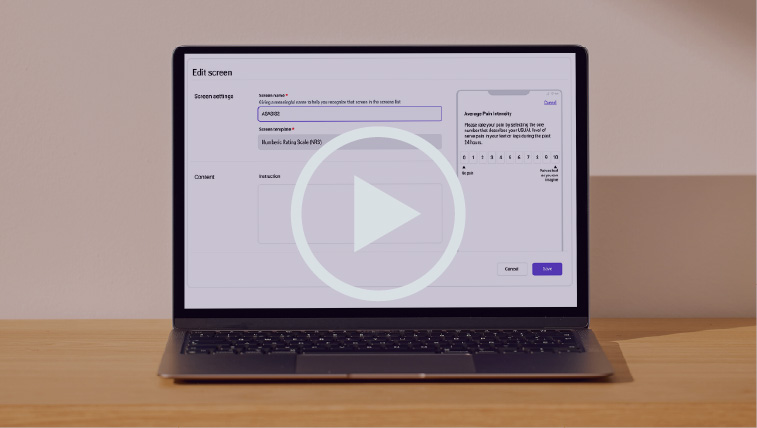

From complexity to clarity: Automate eCOA configuration with AI
Clinical trials are more complex than ever, but building and launching global studies doesn’t have to be. Watch alive demo of our AI-powered eCOA platform to learn more.


Not just a tool: How AI agents become trial teammates
Explore how agentic AI is transforming clinical trials by automating routine tasks and boosting team efficiency with real-world, low-risk use cases.
Scientific Research

Assessing the financial value of decentralized clinical trials
Deployment of remote and virtual clinical trial methods and technologies, referred to collectively as decentralized clinical trials (DCTs), represents a profound shift in clinical trial practice. To our knowledge, a comprehensive assessment of the financial net benefits of DCTs has not been conducted

Development of a mobile health app (TOGETHERCare) to reduce cancer care partner burden: Product design study
Research looking at mobile apps and how they may provide a meaningful access point for all stakeholders for symptom management.
Guides
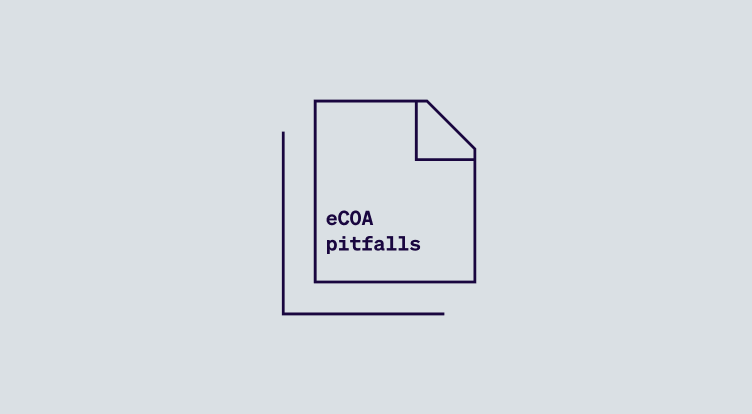

Common eCOA implementation pitfalls and how to avoid them
The global eCOA (electronic clinical outcome assessment) solutions market was valued at over two billion dollars in 2025, and is projected to expand rapidly over the coming decade, driven by increased clinical trial activity, digital transformation efforts, and the integration of mobile, cloud, and AI-enabled tools for outcome measurement.
This growth reflects not just broader industry digitization, but an evolving expectation: that outcome data should be accurate, audit-ready through validated systems and controlled operational processes, and capable of supporting decentralized workflows.As more sponsors and CROs incorporate eCOA into their trial strategies and regulators continue to emphasize electronic data integrity the stakes of successful implementation have never been higher.
Yet with greater adoption comes greater complexity: pitfalls around site burden, mid-study amendments, device logistics, and training gaps can undermine even the most advanced platforms if not thoughtfully addressed.
The good news? These common challenges can be anticipated and managed with practical, operationally aligned planning turning eCOA from a source of friction into a strategic advantage for trial success.


Vertical vs. horizontal: Why your Agentic AI should be built by clinical experts in life sciences
By now, most people are familiar with ChatGPT and other general-purpose AI tools such as Perplexity. These horizontal AI systems have become commonplace, assisting users with tasks like composing emails, summarizing information, or generating creative ideas. Their adaptability across a wide range of domains demonstrates the power of general intelligence and transfer learning.
However, in the high-stakes and highly regulated context of life sciences, it is important to ask whether such tools are suitable for clinical use. In this setting, a vertical agentic AI approach—purpose-built for specific domains—provides the precision, reliability, and compliance necessary for success. While both horizontal and vertical agentic AI play essential roles in the broader evolution of intelligent systems, it is the vertical approach that ensures the rigor and accountability demanded by life sciences applications.
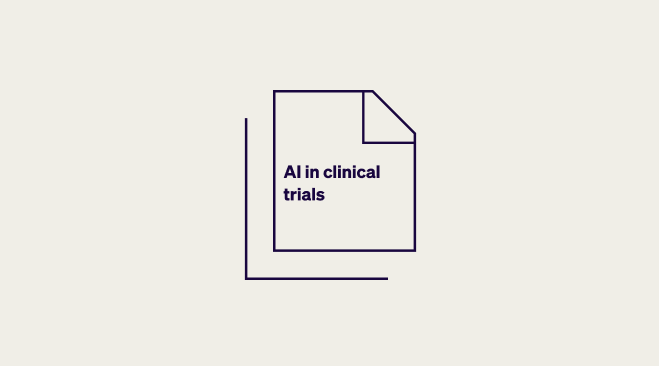

Building blocks: The ultimate guide to AI in clinical trials
Explore how artificial intelligence (AI) is fundamentally transforming every facet of clinical trials, from initial protocol design and patient recruitment to data management and regulatory approval. This comprehensive guide provides an authoritative, in-depth look at AI's role in accelerating drug development and improving patient outcomes, with special focus on emerging agentic AI technologies.



